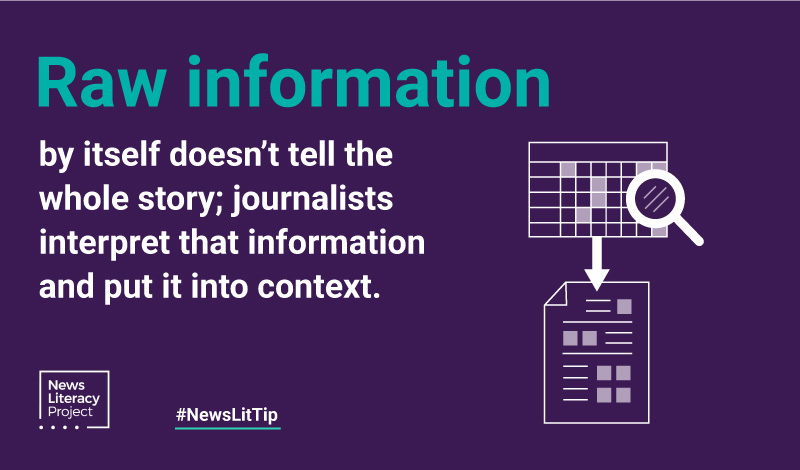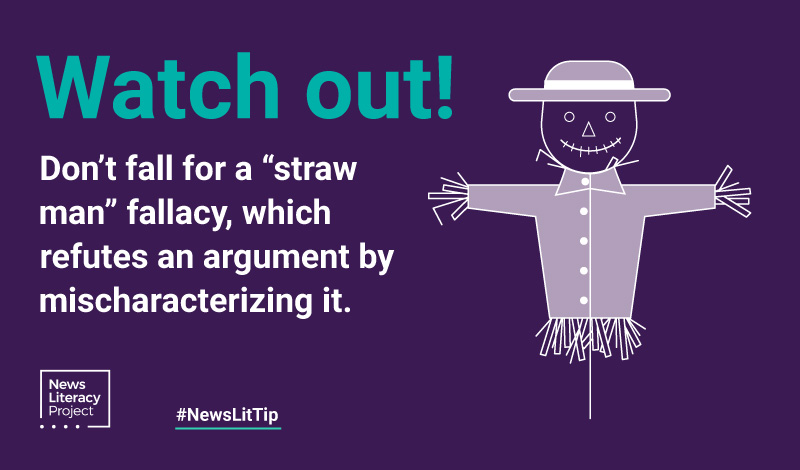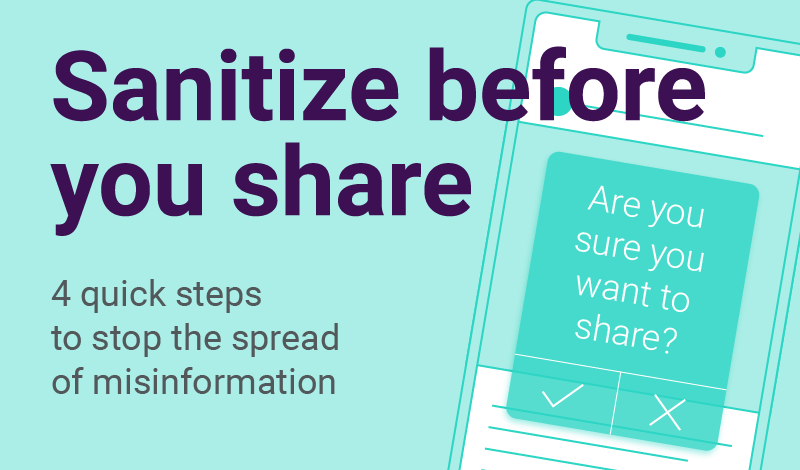
News Lit Tips
Don’t be blown away by the ‘straw man’ fallacy

Straw: It’s lightweight, it’s insubstantial and it easily blows away.
That’s also true of the type of argument known as the “straw man” fallacy — but only if you
recognize it.
This lapse in logic can occur in a discussion when one person responds not to the point being
made, but to a new point created by simplifying or exaggerating something that another person
said.
This shift in language can be subtle, though. That’s why it’s easy to be tricked with a straw man
argument, especially when the topic being discussed is controversial — when people are jumpy,
and tempers are ready to flare.
You’ll find examples across the political spectrum:
- When someone expresses support for restricting the sale of assault weapons, a straw
man argument would ask “Why do you want to take away everyone’s guns?” - When someone notes that regulations to counter the effects of climate change might be
burdensome on businesses, a straw man argument would ask “Why are you denying
that climate change exists?”
In both cases, the straw man argument ignores the other speaker’s point, and instead trashes a statement that was never made.
The straw man fallacy appears often in political debates, when speakers are focused more on
impressing and persuading the audience than on changing their opponent’s view. To avoid
being taken in, listen closely: Is someone repeating the point being made and addressing it, or
has the subject simply been changed?
Here’s something you can do to avoid having to flail against a straw man when discussing hot
topics: Choose to repeat what exactly was said, and make sure that others agree with your
interpretation, before attempting to respond. That has the advantage of slowing and calming the
conversation as well.
And that’s better than building and propping up points of view that are built on straw.



